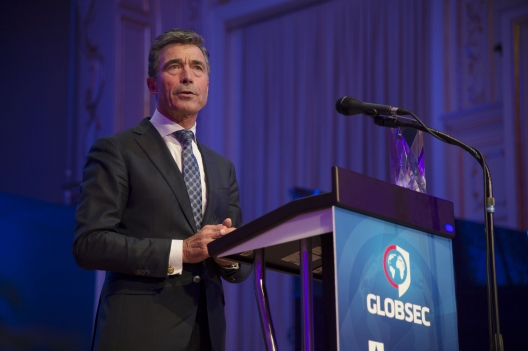 I would very much like to see what I will call a more structured dialogue between NATO and China. We have a dialogue. We have a dialogue with China at different levels. Actually some years ago the Deputy Secretary General, the then Deputy Secretary General visited China.
I would very much like to see what I will call a more structured dialogue between NATO and China. We have a dialogue. We have a dialogue with China at different levels. Actually some years ago the Deputy Secretary General, the then Deputy Secretary General visited China.
The reason why I would like to see a more structured dialogue with China is partly that in certain areas I think we have common interests. For instance, and you mentioned it, counter-piracy. China is also very much dependent on international trade and free sea lanes. So we have a common interest in keeping the sea lanes open so we share interest when it comes to counter-piracy.
And actually NATO organized a meeting on Maritime Security with a particular focus on counter-piracy some time ago and China participated for the first time in a NATO-led meeting.
Secondly, in the region obviously we have an interest when it comes to Afghanistan. We complete, we will complete our ISAF combat mission, hopefully stay with a training mission in Afghanistan after 2014, but a constructive engagement of countries in the neighbourhood is of utmost importance to ensure long-term peace and stability, not only in Afghanistan but in the region. And in that respect, China could play a constructive role. So we have an interest in a dialogue on that.
And finally, let me remind you that NATO operates on the basis… all current NATO operations take place on the basis of United Nations mandates. And we have special arrangements with four, or special relations, I would say, with four out of the five permanent members of the U.N. Security Council. Three of them are Allies: U.S., U.K., France and with the fourth, Russia, we have a special NATO-Russia Council.
But with the fifth, China, we don’t have a special arrangement, and that’s why I use the term ‘a more structured dialogue’ with China would be useful.
Excerpt from “Standing up for Freedom and Security” speech by NATO Secretary General Anders Fogh Rasmussen, May 15, 2014.
Image: NATO Secretary General Anders Fogh Rasmussen, May 15, 2014 (photo: NATO)
